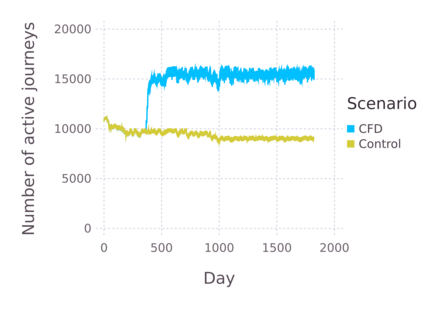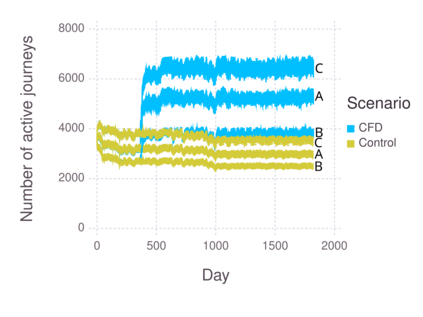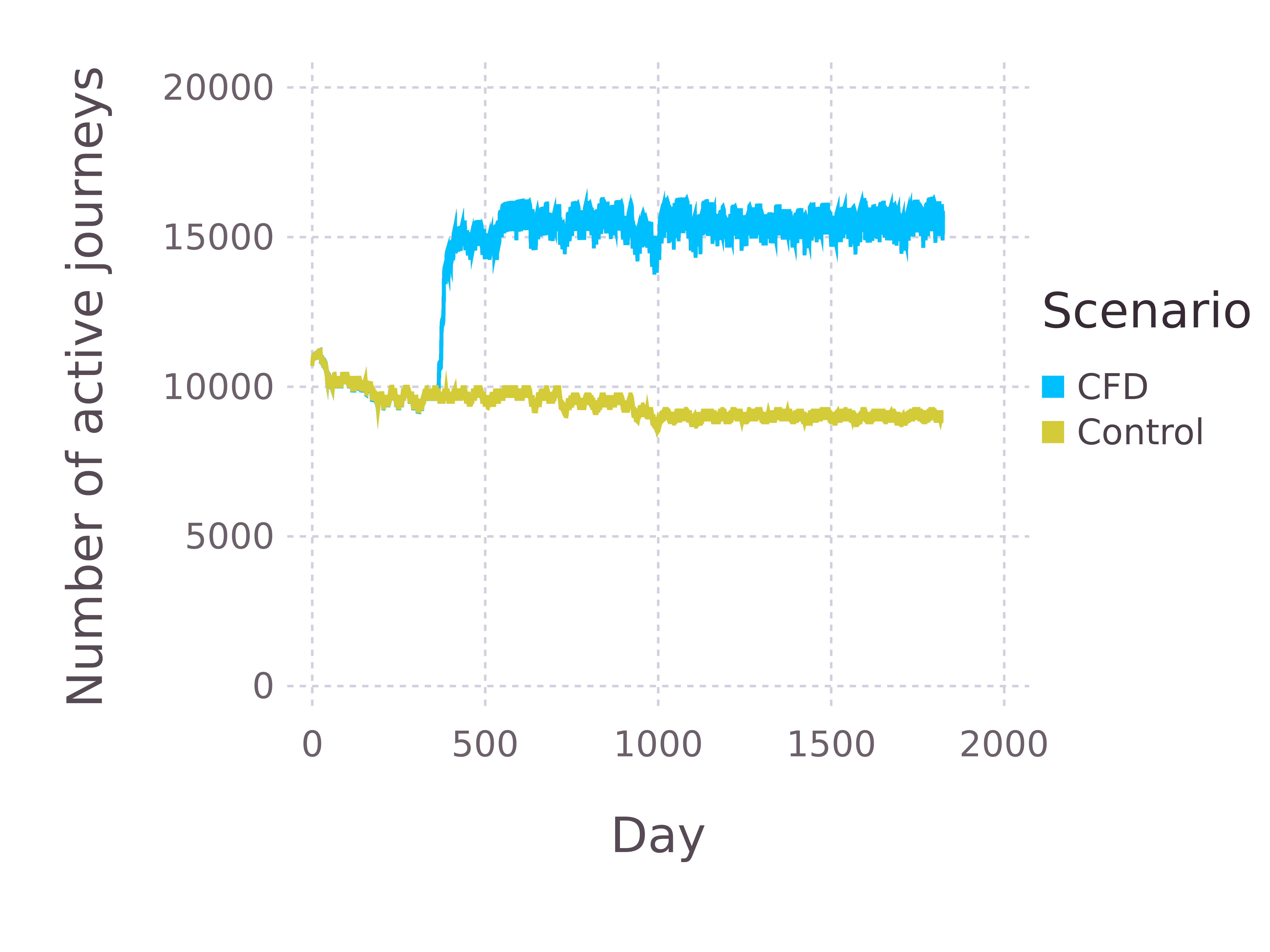Interventions to increase active commuting have been recommended as a method to increase population physical activity, but evidence is mixed. Social norms related to travel behaviour may influence the uptake of active commuting interventions but are rarely considered in their design and evaluation. In this study we develop an agent-based model that incorporates social norms related to travel behaviour and demonstrate the utility of this through implementing car-free Wednesdays. A synthetic population of Waltham Forest, London, UK was generated using a microsimulation approach with data from the UK Census 2011 and UK HLS datasets. An agent-based model was created using this synthetic population which modelled how the actions of peers and neighbours, subculture, habit, weather, bicycle ownership, car ownership, environmental supportiveness, and congestion affect the decision to trave. The developed model (MOTIVATE) is a configurable agent-based model where social norms related to travel behaviour are used to provide a more realistic representation of the socio-ecological systems in which active commuting interventions may be deployed. The utility of this model is demonstrated using car-free days as a hypothetical intervention. In the control scenario, the odds of active travel were plausible at 0.091 (89% HPDI: [0.091, 0.091]). Compared to the control scenario, the odds of active travel were increased by 70.3% (89% HPDI: [70.3%, 70.3%]), in the intervention scenario, on non-car-free days; the effect is sustained to non-car-free days. The model is a useful tool for investigating the effect of how social networks and social norms influence the effectiveness of various interventions. If configured using real-world built environment data, it may be useful for investigating how social norms interact with the built environment to cause the emergence of commuting conventions.
翻译:作为增加人口体力活动的一种方法,建议采取增加主动通勤的干预措施,但证据却好坏参半。与旅行行为有关的社会规范可能会影响积极通勤干预措施的采用,但在设计和评估中却很少考虑。我们的研究中,我们开发了一种基于代理的模型,其中纳入了与旅行行为有关的社会规范,并通过实施无汽车周三展示了这种规范的效用。伦敦的Waltham Forest合成人口使用一种微观模拟方法,其中提供了来自2011年英国人口普查和英国HLS数据集的数据。一种基于代理的模型,它利用了这种合成人口,它模拟了同龄人和邻居的行动、亚化文化、习惯、天气、自行车所有权、汽车所有权、环境支持性和拥堵影响,但在设计和评价过程中,我们开发了一种基于代理的模型,其中与旅行行为有关的社会规范被用来为社会生态系统提供更现实的表述,其中可以部署积极的通勤干预。这一模型的效用是使用汽车的假设性干预。 在控制情景中,活跃的旅行概率为:91-0.0天,运行的概率为70.






